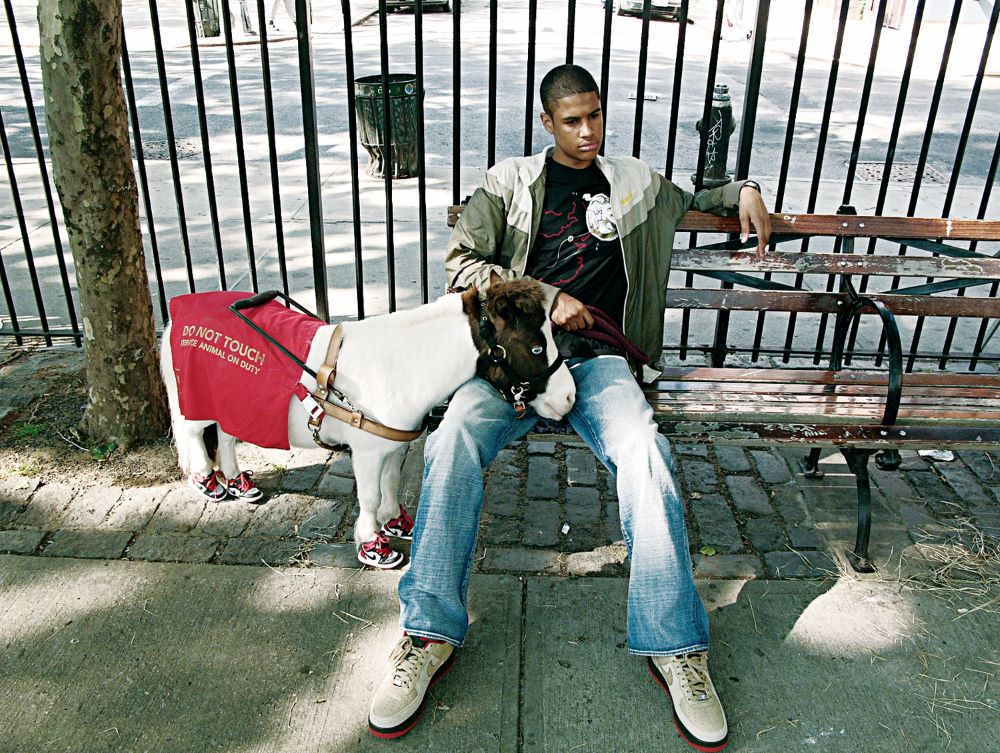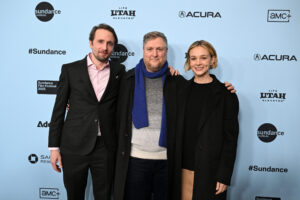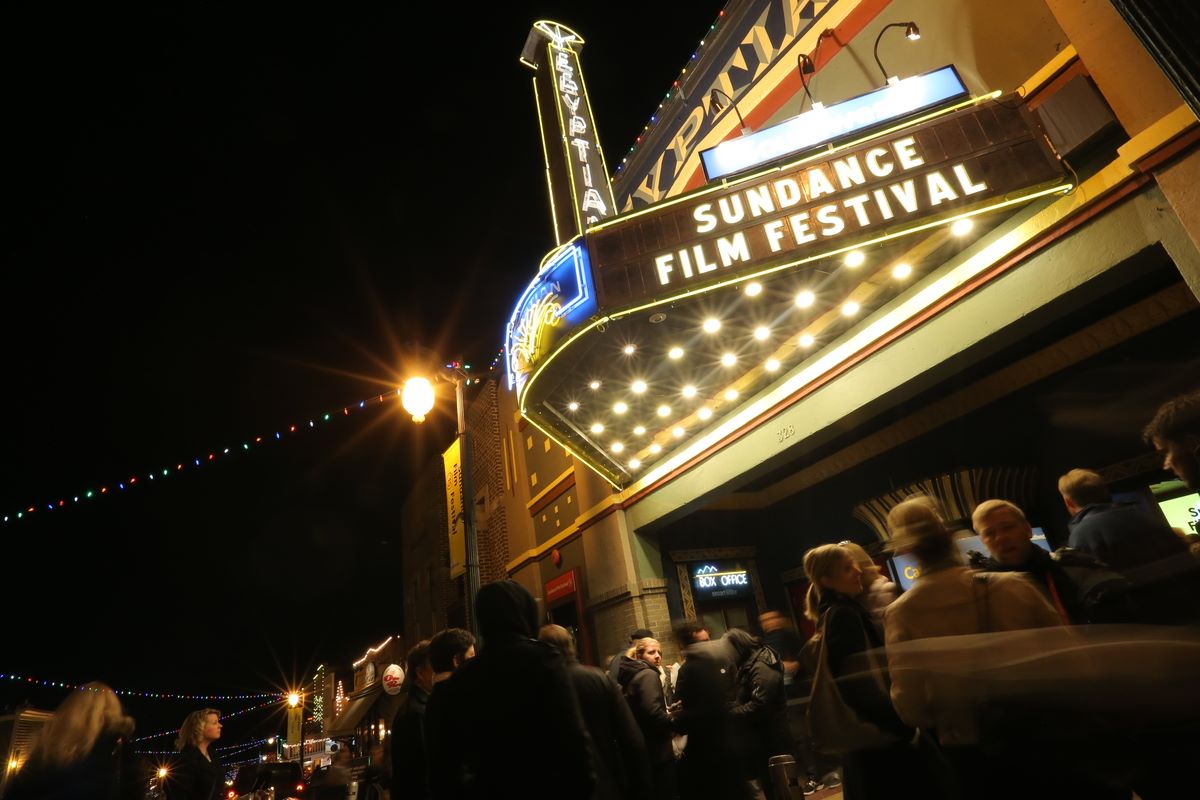Since the 1980s, the Sundance Film Festival Short Film Program has been a launching pad for independent storytellers. Directors like Dee Rees, Taika Waititi, Debra Granik, Reinaldo Marcus Green, and Todd Haynes started out submitting their short works to the Festival before transitioning to full-length features.
For the 2023 Festival, August 19 is the official deadline to enter a submission. Each year, Sundance programmers work their way through about 10,000 submissions to decide on the slate for the January festival.
Films running 50 minutes or less, from the United States and beyond, qualify. Works need not be premieres: “Films that have been screened at any number of festivals or other public theatrical exhibitions, broadcast or streamed on television or the internet, and/or released via any home video or other public distribution platform anywhere in the world are eligible for this category,” according to the rules. (For more rules and to submit, click here.)
In the meantime, the Sundance programmers responsible for selecting the short films offer some advice and tips for short-film makers — and some insights into the process.
What are the specific elements/traits you look for when selecting a short for the Sundance Film Festival?
Lisa Ogdie: This is probably a frustrating answer for filmmakers, but there aren’t necessarily any specific elements or traits I’m looking for when selecting short films. We’re looking to showcase an eclectic and varied selection of films, while representing as much of the world as possible, and those films can look quite different from year to year.
Adam Piron: This may seem like a non-answer, but: originality. There’s no real way to formulate what that is, other than that it’s just a filmmaker making a film and telling a story in something that’s uniquely their own. That’s what usually rises to the top, and it’s always something that’s not been seen before.
Amanda Salazar: Because there are only so many stories to tell, I would say that point of view is important. Something that feels original to the filmmaker and the world that they are creating. I understand that is vague, but when it is pure, it really does stand out.
“
I’d argue that trying to find out what we’re looking for is far less important than finding out what you’re looking for.”
Landon Zakheim: As my esteemed colleagues have said, there’s no easy answer or magic formula that gets your movie into the program. Authenticity and voice can be more compelling than throwing large budgets and great production value at empty storytelling. I’d argue that trying to find out what we’re looking for is far less important than finding out what you’re looking for. If you’re trying to alter your vision and voice to what you think someone else is expecting to see, you tend to start straying further and further away from your own intent and the reasons you wanted to make your project in the first place, no? If you make something that matters to you, and you pour everything into it, and you have filmmaking instincts and good luck on set, chances are much higher that what you’re trying to say will resonate with others who watch it.
Saidah Russell: I know I’m echoing everyone else here but naming the specific elements/traits of a successful short is difficult. Anything (within reason, I suppose) can be compelling if there’s genuine vision behind it. Maybe you’re riffing off themes, ideas, premises that feel very familiar, but if the artistic approach is thoughtful and the execution is assured, then you’ve likely made something that will stand out to a programmer.
DaManuel Richardson: I agree with everything said thus far. Authenticity and voice are always No. 1 in my mind. Be original. Be bold. Don’t be afraid to do what feels right in your gut. If executed well, those authentic choices will shine through on screen, and we’ll notice it.
Mike Plante: I believe that a short film is successful by playing within its own rules. You are creating a world and characters, keep pushing yourself, and take risks with the style and what audiences might expect.
Give an example of a film that you saw and immediately knew it was right for the Sundance Film Festival, and explain why.
LO: This is a tough question to answer. The programming process is a balance, and while we see many great films every year, that does not necessarily mean that all of them will get into the festival. With that being said, there are, of course, films that we’ve programmed over the years that I’ve loved, and I would encourage you to take a look at the 40th collection from last year, which highlights 40 shorts programmed

throughout the history of the festival. There are some great gems in there and Force 1 TD from the 2008 program is definitely one I would suggest you seek out.
MP: I’ve actually never felt that, only because our process takes months and moves slowly. More like, “This is fantastic — I hope we have space for it.” We are extremely fortunate that so many amazing shorts get submitted (helped by the fact we have never had a premiere policy for shorts), and there are hundreds of kickass films every year that we run out of space for.
After seeing 10,000 shorts every year, what is one piece of advice you can give from common pitfalls you see?
Irene Suico Soriano: If your film is over 20 minutes, it really has to earn it! And I appreciate a short with a film score that effectively partners with the narrative. Ill-placed music or having music overwhelm a scene is a big liability for a short.
LO: We often get questions about pitfalls or cliches to avoid, but for every example, there’s also a film that exists that does that thing really well. My advice is to make the best film you can possibly make that is true to your vision. Authenticity resonates with audiences, and that will shine through. Maybe avoid post-credit stingers, but hey, if your film needs to have one, go for it.
“
It’s a short film, so don’t try to cram in a full three acts or how you would normally structure a feature.”
AP: It’s a short film, so don’t try to cram in a full three acts or how you would normally structure a feature. It should just be what it’s meant to be for that run time, rather than something that would be better suited for a longer format.
LZ: Why exactly does your short film need opening credits? Is it helping the story or tone in some way? Is it doing something for the pacing, other than making your film longer? If so, great. If not, maybe they don’t need to be there?
DR: I agree about the music. Try to use the score to enhance the storytelling, not overwhelm it. Oh, and I second the point about lengthy opening credit sequences. I would try to avoid it, if possible. Grab your audience’s attention by launching them into the story right out the gate. Save the credits for the end.
MP: Two minutes of end credits on a 10-minute film plays very awkwardly in a shorts program in a movie theater. A character drinking straight from a big bottle of whiskey seems to get laughs.
How do you get through so many submissions?
MP: 10k is such a big number, but there are 10 programmers and six months (May through October) to do it. Personally, I will see at least 1,200 raw submissions. It does get busier when we get most of the submissions in around deadlines, but I’ll average 10-15 a day throughout the whole process, so it’s very manageable to stay fresh when we are screening.
Emily Doe: It definitely helps to create a schedule and do your best to stay on track. It’s far more enjoyable to watch 10 shorts a day rather than 35… but I’ve definitely had those days! One of the perks of the short format is that even if all you have is 30 minutes, that is still potentially enough time to watch as many as five short shorts.
LZ: Very slowly.
AP: Time management. Our team starts watching things early, and it really is something like a marathon. You have to pace yourself with how much and how long you’re watching. It’s usually good to keep it to a daily minimum or something that you can allot weekly.
“
It’s almost like training for anything, you learn to be present and excited for every film that you see, one submission at a time…”
AS: Practice! It’s almost like training for anything, you learn to be present and excited for every film that you see, one submission at a time, as you do this for a while. And a schedule, like Emily said above.
DR: Pacing is everything. It’s a marathon, not a sprint. And don’t save the longer ones for the end. That will end up hurting you later, trust me.
Heidi Zwicker: I like how everyone compares it to exercise and sports, when the skill partly required is staying sedentary for as long as possible. But I think it’s just a matter of making sure you are still engaging with every film you watch — their makers deserve that. You need to be self-aware enough that if your mind is starting to wander, you need to take a break.
What’s an optimal run time that you’ve seen?
ED: I don’t think there’s such a thing as the perfect right run time, because it varies so much based on the story and storyteller, but I will say that I think it’s easiest to program a short film that is 15 minutes or less. This provides enough time to build a world, get to know a character, tell a story, and/or exhibit a style, while also giving us room to showcase as much new talent as possible in our roughly 90-minute programs. I would say one exception is documentary shorts, which often need more time for investigation and thus could be closer to half an hour.
HZ: It varies for each film, because the optimal run time is exactly the amount of time you need to tell the story or depict the experience of your film, not a minute more or less. And that’s hard to define!
AP: I don’t think there is one. For every rule, there’s an exception, and run time is one of those things where it can kill some shorts and really make others knock it out of the park.
IS: I think there is no such thing as an optimal run time. There are [as many] fully developed and spectacular shorts that are nine minutes as there are [those] that run 22 minutes long.
“
You really gotta ask yourself when looking at your cuts: Is this the tightest version of my story?”
LZ: Best answer I’ve got for this one is to make it as short as it can be, while being as long as it needs to be. Really annoying advice, right? I get that doesn’t always come across as sounding helpful to a filmmaker struggling for answers and direction, but what that really breaks down to mean is that you have to be absolutely ruthless in your editing room. We take shorts that are 5 minutes and shorts that are over 30 minutes, and in those cases, those specific films ended up at the length they needed to be to tell those stories. So you really gotta ask yourself when looking at your cuts: Is this the tightest version of my story? It’s true long shorts are competing for space, and it’s also true that many submissions are far longer than they should be. If you’re finding yourself stuck, why not try making the shortest version of your film possible, and if you find when showing your cuts to collaborators that you’re missing essential elements of your voice, add them back in? That’s just one approach. We’re not here to tell you how to make your film. We just watch them.
Should I try to get someone famous in my film to help it get attention?
ED: I honestly think fame provides as much distraction as (potential) enhancement, so I’d say just focus on finding talented actors who feel like the right fit for your characters and film.
LZ: If they’re right for the part, and if they owe you a favor, and if they’ll do it for free, and if they’re easy to work with, and if their schedule isn’t going to be a problem, and if they’ll help you with resources and also if they’ll give you money for it, then, I guess, why not? It has no bearing on whether your film is going to get into the festival, if that’s what you’re asking. If you’re not starting out with a pre-existing collaborative relationship, then you’re spending a lot of effort that could be spent working on the creative aspects of the film, in my opinion.
IS: While it may sound like a seemingly effective strategy, it is a superficial one. A celebrity appearance will not float an overall subpar short.
AP: No. If you need a famous person to draw attention to your film, it’s not working as a film.
“
You should ask yourself: Are they the right person for the role?”
AS: We often look to and project onto celebrities a sense of familiarity and expectation. So you should ask yourself: Are they the right person for the role? Will having them in it benefit the story or take away from it? If you are simply looking for attention, it doesn’t help. To the points already made, it does not mean that your film will be accepted/programmed.
DR: As long as the casting makes sense, why not? But please, don’t break your back or the bank to get a celebrity on screen. It honestly does not play a factor whatsoever. Besides, we’re equally or even more excited about a tremendous undiscovered talent cast in a perfect role.
How will making a short help my long-term career?
IS: The different stages that go into the creation of a short, from concept, pre to post, is an education like no other. It provides filmmakers, on a practical level, the industry standard “calling card” they need to facilitate representation and, hopefully, future projects. More importantly, the process creates a scenario that provides filmmakers the ideal space to hone their storytelling skills and practice their craft. Playing the long game of a career in filmmaking is understanding that, at its core, it’s an intensely collaborative process built on solid relationships. How better to know if you’ve got what it takes than to start with the complexity/simplicity of making a short film?
LO: While the short film business is not a lucrative one, it provides a space to experiment and find your voice as a filmmaker. Agents and managers track our lineup every year. looking for the next generation of talent, which can, in turn, lead to work and other opportunities.
“
The short form is a really great sandbox to figure out your voice and how to use it.”
AP: The short form is a really great sandbox to figure out your voice and how to use it. You’ll figure out how you want to make films and how you don’t, and you’ll also see what works and what doesn’t. Once you start to crack that, and once others start to see that you are, it’s a good way to validate that you’re ready for the jump to a feature… or you can keep making awesome shorts too.
LZ: If nothing else, you will learn a ton. If you’re lucky enough to get into a festival, you’ll get to see other great work, meet like-minded filmmakers you connect with who can become collaborators, and in a perfect world, you can help and challenge each other to make better and better work. Nothing about filmmaking is easy, but shorts allow you a certain freedom of expression that is invaluable.
AS: I would encourage anyone to make the film that they want to make. And shorts provide a wonderful space to experiment, try ideas, work with new people, gather different experiences, and learn, to help you maintain the kind of career that you are looking to cultivate.
DR: I agree with what everyone said here. Short films give you a certain amount of freedom and space to experiment and try out ideas. Typically, lower stakes are involved, allowing you to learn and go through “growing pains” as a storyteller. Overall, there are so many life lessons that come from completing any artistic endeavor. Whether it’s a short or a feature, you’ll learn a ton about your style, voice, collaborators, and process that will carry over to your next project.
MP: If you make a good short film, audiences and industry will find it and want to know what you are doing next. Don’t stress about the future projects; just be devoted to what you are making right now, right here.

What to Watch: 7 Sundance Institute–Supported Films Featuring Brilliant Performances by Trans Actors

“The Ballad of Wallis Island” Proves That a Good Story Is Worth the Wait


